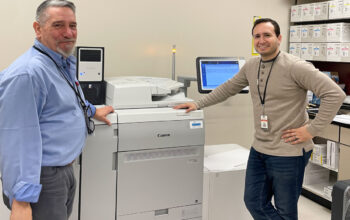Chloe Davis
Reporter
Anyone who takes a language at our high school knows exactly what a typical language class looks like. A few students trying to decipher what their teacher is saying, while most have already fallen asleep on their desks. It’s rare to find a Spanish, French or language class with a group of students who love to learn the language.
Junior Meaghan Walsh, a Spanish five student, said that she didn’t find her class very interesting. “I like Spanish as a language, but because it’s AP and the last level offered, I’m not really motivated to do much,” she said.
In most language classes offered at our high school, an overwhelming majority of students show a noticeable lack of interest in the language they are supposed to be learning. “Kids today don’t give it the importance that it deserves to be given,” Spanish teacher Alessandra Zylberkan said. “A huge population of students that take a language only take it because most colleges require at least three years of a language.”
Sophomore Teddy Vulgharis is one of those students. “I really just take it because it’s a requirement,” he said. “I don’t know if I’ll focus on language later on in life.”
Spanish teacher Dr. Diane Cornwell addressed the ideal approach to language. “Doing it to get a grade or a credit doesn’t produce the same motivation as if someone is interested,” she said.
What students might not know is that the benefits to taking a high school language are numerous. To address these benefits, several advanced Spanish classes will attend a meeting in the Wagner room today, March 25. There will be a panel of Hispanic professionals who will discuss their career paths and highlight opportunities presented in various business and professional fields for applicants who are proficient in Spanish.
Dr. Cornwell organized the seminar for Honors 4 and 5 Spanish classes to open students’ eyes. “We are going to have an array of professionals: a banker, an insurance executive, an architect,” she said. “If a student is interested in art, law or medicine, they will be able to find someone to talk to who will explain the doors to their future.”
Ms. Zylberkan, who speaks fluent Portugese, French, Spanish and English, knows from first-hand experience about the benefits of being multi-lingual in the workforce. She worked in corporate business as a financial advisor, an area of work that looks specifically for multi-lingual employees. “I was hired because of my degree, but also definitely because I spoke different languages, which was appealing to a multi-national company,” Ms. Zylberkan said.
Recent studies have shown that in today’s job market, there is a rapidly rising desire for multi-lingual people. In a case study done by the University of Phoenix Research Institute, the demand for employees fluent in foreign languages, especially Spanish and Chinese, should continue to grow over the next decade. “I’m not fluent in it yet, but taking Chinese will be beneficial to me once I really learn it,” senior Chris Cole, who takes Chinese, said. “I know it’s going to be really important to have knowledge of another, usually consider unique language.”
In a survey of over 400 employers, 42% expect business proficiency in Chinese to grow in demand, and nearly 70% expect the same for Spanish. At the same time, in a survey of over 500 workers, more than 80% said that they were highly unlikely and uninterested in becoming proficient in Chinese while nearly 60% said they probably wouldn’t learn any Spanish.
On the other hand, there is an increase in college students who want to learn languages. According to the Modern Language Association, a professional association for scholars, college enrollment in Chinese grew more than 18% and enrollment for Spanish grew about 5%.
College students are not the only ones looking to learn languages. Senior Kerri Anderson, who spent her junior school year in Spain, said that there are many benefits of knowing another language. “In my opinion, being multi-lingual is the biggest advantage someone can have in today’s world,” she said. “There are so many things that you can use language for.”
People like Kerri will already have one foot in the door when most kids are still trying to learn basic grammar in time for their jobs. “A lot of people who grow up in Europe are learning 2-3 different languages,” Ms. Zylberkan said. “When they apply for jobs for multi-national companies, they have a huge advantage.”
Dr. Cornwell also acknowledged the advantage to being multi-lingual. “Each language has a different perspective – you have to put your thinking into a whole new box,” she said. “Having your eyes open to that extent makes you a much more attractive candidate. Even if the language wasn’t a requirement, it’s a huge bonus for being able to look at the world in that way.”
Beyond the many uses of language in the business world, Kerri has noticed other aspects of language that have made her value it. “My favorite reason is the personal satisfaction I get from being able to express myself in a way that is not natural, but something I learned and accomplished myself,” she said. “Language is not just words, but an entire culture. You just learn so much about yourself and the world.”



